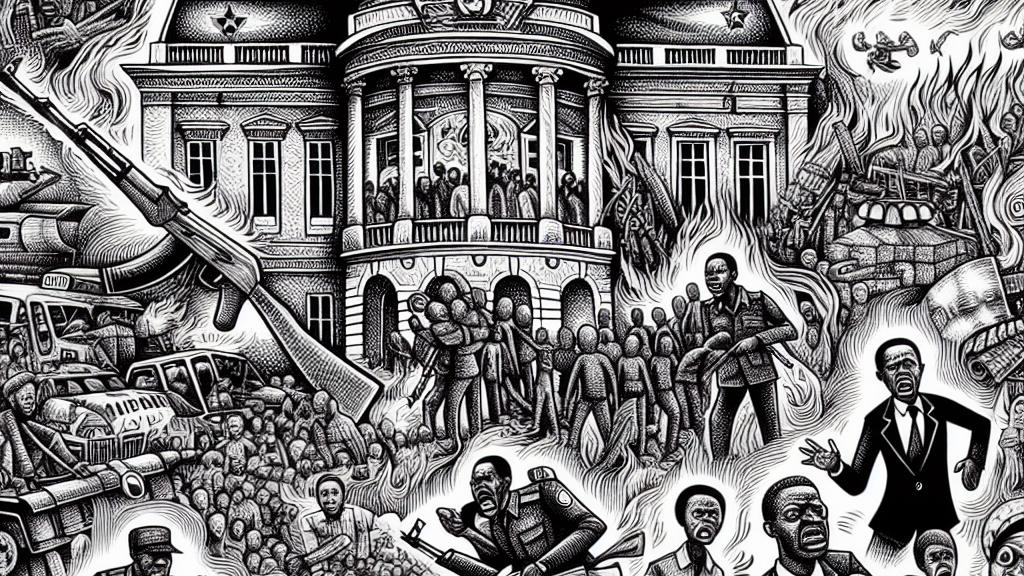Death Sentences in DR Congo Coup Attempt
Overview
- In a shocking development, thirty-seven individuals have been sentenced to death for their involvement in a coup attempt aimed at overthrowing the DRC government.
- This coup, which involved intense violence and attacks on key political figures, highlights the ongoing instability and challenges faced by the nation.
- Among those convicted are three American citizens, raising critical diplomatic concerns and questions about foreign involvement in Congolese affairs.

Context of the Coup Attempt
May 2024 marks a significant turning point for the Democratic Republic of Congo (DRC), as the nation grappled with a violent coup attempt that shattered the political landscape. The drama unfolded in Kinshasa, where armed groups affiliated with Christian Malanga instigated attacks not just on the presidential palace, but also on prominent figures, including Vital Kamerhe, a trusted advisor to President Félix Tshisekedi. This orchestrated chaos resulted in six tragic deaths and left many Congolese citizens feeling unsafe and uncertain about their government’s ability to protect them. The complexities of this situation were further amplified by the involvement of Malanga, a dual citizen of the U.S., who was killed during the coup attempt. His dual nationality adds a fascinating layer to an already multifaceted political crisis.
Legal Proceedings and Sentences
Following the upheaval, the military court convened to address this unprecedented scenario. In a highly publicized trial with 51 defendants, 37 of whom received the death penalty, the proceedings captured national and international attention. This extraordinary judgment has significant implications, particularly as it includes three Americans, which raised urgent questions about accountability and the legal ramifications of foreign involvement in domestic conflicts. During the trial, numerous defendants shared compelling testimonies, alleging they had been forced into the conflict. Tyler Thompson, one of the accused, poignantly stated, 'I came to Congo to meet family, not to be caught in this turmoil.' Such powerful narratives emphasized a profound moral dilemma: the tension between rule of law and human rights in an era where capital punishment is being revived amid growing chaos.
International Impact and Responses
The fallout from this coup attempt reverberates globally, especially concerning U.S.-DR Congo relations. The American embassy’s expressions of shock highlight a vital concern for diplomatic engagement moving forward. Meanwhile, the African Union’s condemnation of the coup portrays a united front against such threats to democracy throughout the continent. As President Tshisekedi works to stabilize the nation, he must confront not only public unrest but also the expectations of international partners seeking a commitment to democratic principles. The need for reform in governance, security, and human rights protections is clearer than ever. The DRC's challenges serve as a powerful reminder of how vital effective leadership and international cooperation are in promoting peace and fostering economic growth in a country rich with potential but still shackled by its turbulent past.

Loading...